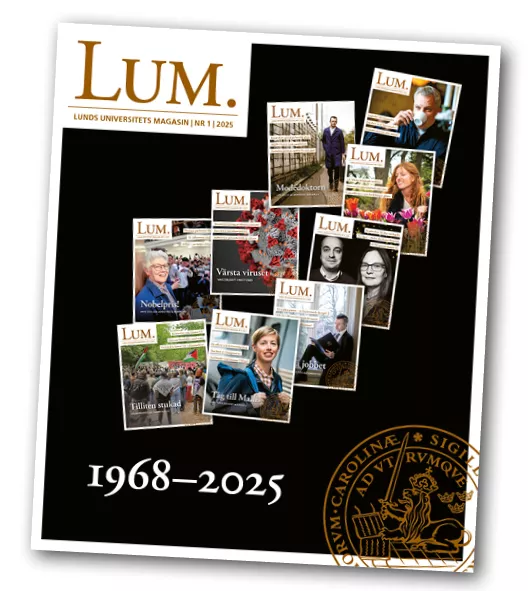The EU Commission describes the new framework programme as an evolution rather than a revolution, because even if you index-link the new programme to the previous one, Horizon 2020, the amount of funding has significantly increased. Caroline Sundberg attributes this to powerful lobbying and political will.
“There has been a lot of pressure from the research community to be part of the project. The Commission listened and linked all the criteria to the global goals on climate and sustainability”, she says.
Another explanation for the increased total grant is the pandemic – a lot of money has been set aside for virus and vaccine research and the societal impact of the spread of infection.
Improve collaboration projects
By tradition, Lund University researchers are good at applying for and obtaining grants associated with excellence and basic research, for example from the European Research Council, ERC, and Marie Sklododowska-Curie, MSCA.
However, they have not been as successful in collaboration projects requiring consortia with other European higher education institutions and with industry. In this area there is a lot more to be gained and Lund is of interest, according to Caroline Sundberg, who encourages researchers to use the resources available in the Brussels office.
“We are here to help the researchers find more information as well as matching them with partners from other higher education institutions”, she says.
Four new aspects
Last summer, Region Skåne launched a planning grant to increase and broaden the number of collaboration project applications to Horizon Europe from Skåne. The planning grant can be applied for by researchers at any of the higher education institutions in the region who intend to coordinate a collaborative project.
“After all, it takes time to write an application, which is why yet another planning grant is welcome”, observes Caroline Sundberg.
Horizon Europe is not very different from the previous framework programme, Horizon 2020. Exactly as its predecessor, the programme sets aside more funding for collaboration with industry, innovations and utilisation of research findings. However, Caroline Sundberg points out four new aspects:
- A European innovation council, EIC, is now in place to further stimulate European innovation.
- The significance of the global Agenda 2030 goals has increased with the focus on enabling their achievement.
- A gender perspective permeates the programme with requirements on gender mainstreaming, gender equality plans and gender equal research teams.
- Five missions have been launched to reinforce links between EU research and innovation and societal needs. These missions are in the fields of climate adaptation, cancer, soil condition and food, climate neutral and smart cities, and healthy seas, coasts and lakes.
“Unlike the traditional collaboration projects, the missions are goal-driven with a clear deadline for the achievement of the desired outcome”, says Caroline Sundberg.
Help with applications
She and her colleague in Brussels, Rickard Eksten, are part of Lund University’s Research, External Engagement and Innovation division, part of which is located in Lund to help with practical aspects of research applications.
“Contact Research Services for more information on current calls for applications and available support. Through them, you can also reach us in Brussels.”



